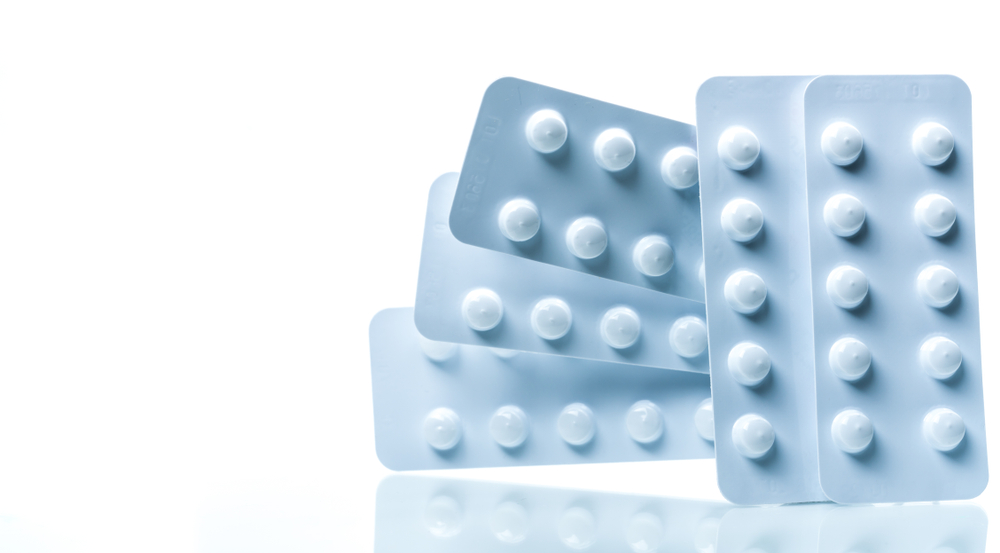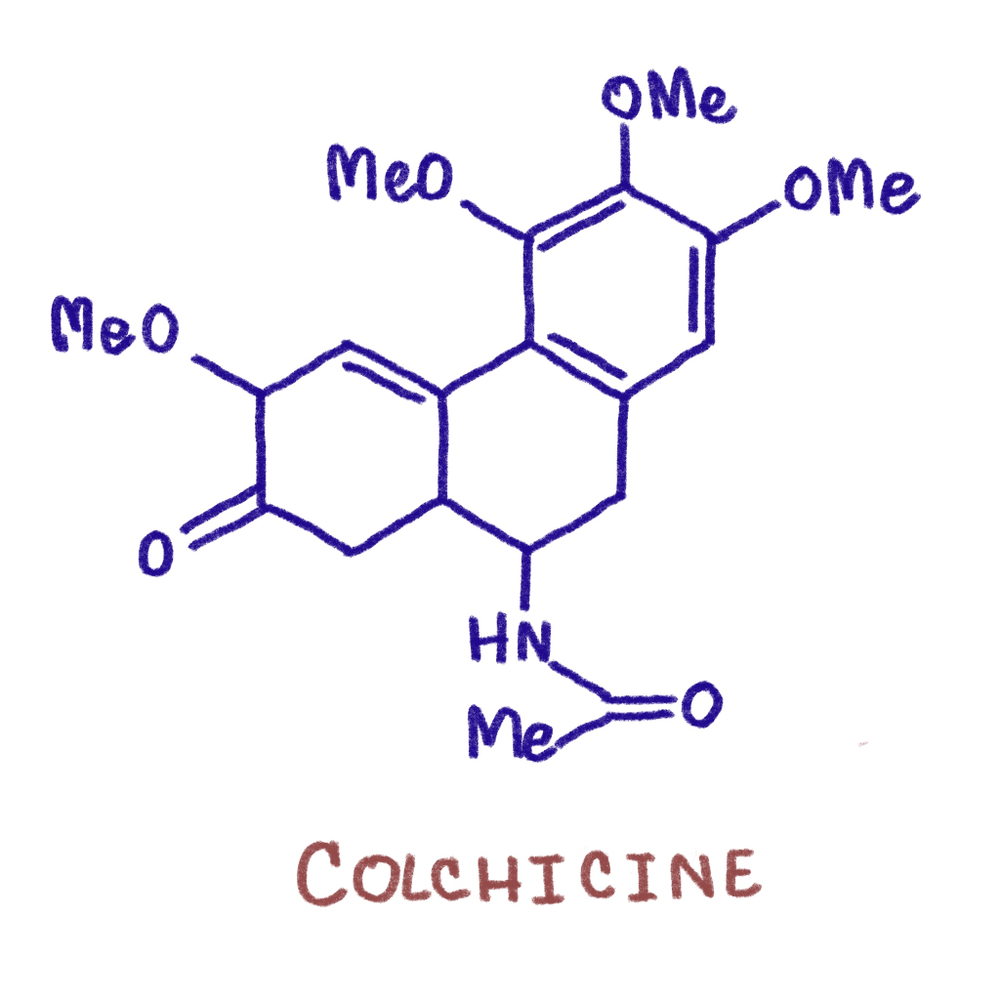What is Colchicine?
Colchicine is a modern effective anti-gout drug of strong action and pronounced effect. Produced in the form of tablets, the active components of preparation aim at effective relief of a gout attack (form of arthritis) by reducing uric acid to a normal level. On the first day of colchicine administration a noteworthy reduction in pain feelings and joints inflammation is observed. Colchicine is available in tablet form, 1 tablet contains 1 mg of colchicine, the active ingredient; the pack typically contains 20 film-coated tablets. Colchicine treatment is recommended only after consulting your doctor.
Pharmacological action
The drug reduces leukocyte movement to the center of inflammation and inhibits phagocytosis of microcrystals of uric acid salts. Colchicine inhibits cell division at metaphase and anaphase fully or partially, stops degranulation in neutrophils cells, has a bright antimitotic action. The drug prevents the development of amyloidosis and reduces the occurrence of amyloid fibrils. Colchicine is a highly efficient remedy in treating severe forms of gout. According to a multitude of reviews, the drug helps 75% of patients within the first 10-12 hours after administration.
Colchicine: indications for use
Mentioned below listed the indications and contraindications for colchicine use. Therefore, the medication is prescribed in:
• Gout prevention or acute gout attacks treatment
• gouty arthritis, scleroderma, chondrocalcinosis
• individual forms of phlebitis, inflammatory diseases in dentistry and otolaryngology
• Mediterranean fever of family type, amyloidosis
Colchicine is contraindicated in:
• acute renal or hepatic failure;
• chronic alcohol abuse;
• neutropenia;
• serious violations of the cardiovascular system, bone marrow and gastrointestinal tract dysfunctions;
• pyogenic infections;
• pregnancy and breastfeeding periods;
• the elderly patients;
• Hypersensitivity to the drug’s active component.
Colchicine treatment can cause side effects: CNS depression, neuropathy and peripheral neuritis. Digestive system disorders: abdominal pain, nausea, vomiting, diarrhea, loss of appetite, malabsorption syndrome (lack of vitamin B12) and disruption of the normal functioning of the liver. Hematopoietic system: neutropenia, agranulocytosis and leukopenia. The medication may cause allergic reactions: urticarial and morbilliform rash.
If signs of a colchicine overdose are registered the patient is needed to be hospitalized as soon as possible, since detoxication treatment is required.
Colchicine dosage and administration methods
Colchicine is taken pereorally. To resolve the inflammatory process occurring in conjunction with an acute form of gout attack, the dose regimen is as follows: the first day – 3 tablets, the second or third day – 2 tablets, the fourth and subsequent days – 1 tablet per day. The drug is recommended to be taken in the evening. Depending on a particular case, a doctor may adjust regimen, in which the patient takes one tablet 1-2 hours or a half of a tablet until the severe pain disappears.
In prophylaxis measures the medication is appointed at a dosage of 1 tablet each 24 hours (preferably in the evening), while the duration of the course equals 3 months. Amyloidosis is treated within at least 5 years, the drug is appointed at a dose of 1-3 tablets per day. In any kind of treatment the dosage must not exceed 8 tablets per day.


